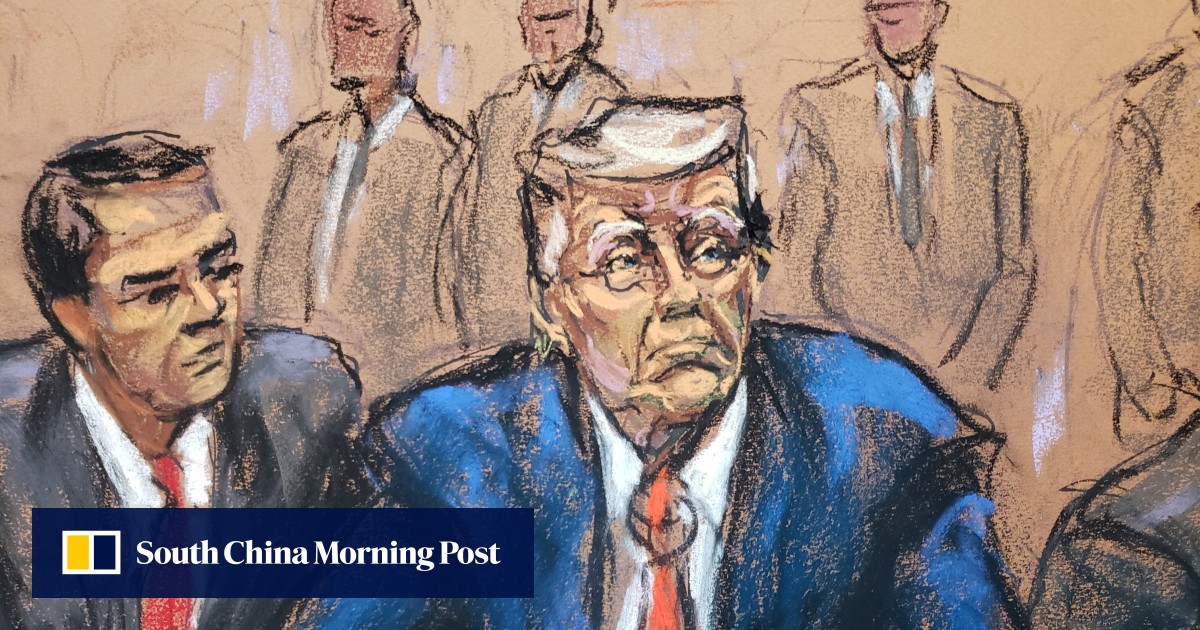While the courts usually shield US presidents from most lawsuits, Trump already lost an immunity bid against civil litigation seeking to hold him liable for the January 6, 2021, attack on the US Capitol.
But his appeal of that ruling has been pending for more than a year, offering a template for how he might try to postpone his Washington criminal trial over efforts to reverse the 2020 election.
Trump’s legal team hasn’t asked for immunity in the criminal case yet, but it is expected to argue that he’s entitled to sweeping protection against prosecution for actions he took related to his White House duties.
During a hearing on Monday, Trump’s lawyer John Lauro said that the Supreme Court hadn’t ruled on the bounds of executive immunity in a criminal case.
His preview of the immunity issue failed to persuade US District Judge Tanya Chutkan to adopt the 2026 trial date that Trump wanted, but Lauro said that if the Trump team does pursue it, they’ll likely ask her to pause the criminal trial until the issue is fully resolved.
Of course Donald Trump can win again
Of course Donald Trump can win again
The strategy is a long shot because US appellate judges typically frown on hearing cases until there’s a final judgment and there’s a history of public officials prosecuted over actions they took while in office, said Brandon Fox, a former federal prosecutor who oversaw public corruption cases in Chicago and central California.
The Supreme Court has ruled on issues related to when presidents and executive branch officials can be civilly sued or subject to criminal investigations, but no sitting or former president has been federally indicted before.
“It’s unprecedented,” Fox said, referring to the prosecution of a former president over events that took place while he was in the White House.
In 1982, the justices ruled in Nixon vs Fitzgerald that a president was entitled to “absolute immunity” against civil damages claims related to their official actions.
In 1997, the court explored how to handle allegations related to private conduct, holding that then President Bill Clinton could face a civil lawsuit over events that predated his time in office.
And in 2020, the justices held that Trump wasn’t entitled to immunity as president against a grand jury subpoena for his tax records in connection with a criminal investigation by New York state prosecutors – a probe that ultimately led to charges earlier this year accusing him of falsifying business records.
The Justice Department has a long-standing policy against prosecuting a sitting president, but that’s not binding on courts and is focused on the effect on their ability to perform their duties in office.
Trump has pleaded not guilty to federal charges that he conspired to criminally interfere with the results of the 2020 presidential election, with allegations spanning the two-month period between the November general election and the January 6 attack.
It is one of four criminal indictments entered against the former president this year.
Trump has raised US$7.1 million since infamous mugshot
Trump has raised US$7.1 million since infamous mugshot
There have been several civil cases filed against Trump by law enforcement officers and congressional Democrats, focused on whether he’s directly responsible for the violence at the Capitol and the disruption of Congress’ certification of the election results. Those suits also touch on his activities leading to January 6.
In February 2022, US District Judge Amit Mehta rejected Trump’s argument that he was entitled to absolute immunity, finding the alleged conduct – inciting the mob in order to hold onto the presidency – didn’t fall under his official duties as president.
Mehta said it instead reflected an “electoral purpose”. Trump appealed to the US Court of Appeals for the DC Circuit the following month.
A three-judge panel heard arguments in December and has yet to release its opinion. Neither side formally asked Mehta to pause the lower court proceedings, but there’s been no activity in the district court since it went to the DC Circuit.
If Chutkan refused to put the case on hold while Trump argued for immunity, he could ask the DC Circuit to intervene. If that court also denied the request, he could petition the Supreme Court justices to step in.

